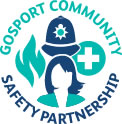A new service has been developed and is currently being piloted by a range of banks and telephone companies across the UK in order to combat the increasing levels of fraud in the UK.
The service, which includes the likes of Barclays, Lloyds (inc. Halifax and Bank of Scotland), Natwest (incl. Royal Bank of Scotland and Ulster Bank) as well as Santander and Starling Bank, allows people to contact their participating bank directly if they think they are being scammed.
It works very much in the same way as 101 does with the police and 111 for the NHS – it ensures that you are protected against possible fraudsters attempting to gain access to personal information or financial information such as bank details.
When should you call 159?
Call 159 if:
- Someone contacts you saying they’re from your bank – even if they are not suspicious
- You receive a call asking you to transfer money or make a payment – even if it seems genuine
- You receive a call about a financial matter and it seems suspicious
Remember, 159 will never call you.
Warning to those using PayPal as an alternative payment method for online shopping
Recently, many of us may have found ourselves spending more time online – whether that be socialising or purchasing items via online auction and social media platforms such as Facebook Marketplace and Gumtree.
On some occasions, unsuspecting buyers are purchasing items online and sending money to who they perceive are genuine sellers via PayPal, but then do not receive the products they’ve purchased.
Over the last two weeks (23 September – 5 October) there have been 14 reports across Hampshire relating to PayPal issues, whereby money has been obtained fraudulently, resulting in losses of over £3,800.
If you are purchasing items from someone unknown to you and they request payment via PayPal, then please be aware that there is an option to select ‘paying for goods or services’. This essentially means that the seller has to pay a nominal fee to receive the money. In doing so, this is likely to result in ensuring that the seller is genuine, and is also covered by PayPal’s protection policy – meaning you may be liable to a refund if it has deemed that fraudulent activity has occurred.
For more crime prevention tips and advice, Get Safe Online and the National Cyber Security Centre have some really useful resources available to you, family and friends.
Cold-callers targeting local residents by offering fraudulent mobile phone contracts
Received a cold-call about a new phone contract recently? Interested, but not sure if it is a genuine opportunity or not?
Unfortunately, Hampshire Constabulary have had numerous reports recently concerning local residents being cold-called by fraudsters purporting to be from mobile phone retailer Carphone Warehouse; offering a new phone deal or contract to the unsuspected victims.
Personal and bank details are provided by the victim believing they are speaking with the retailer. Sadly, the reality is that fraudsters are then using these details to fraudulently obtain mobile devices on long-term contracts from the company, but in the victim’s name.
On one occasion, a Hampshire resident received a call from an individual purporting to be from Carphone Warehouse, encouraging them to enter into a new contract for a brand-new phone and tablet device.
The victim received the wrong items so arranged to return them to an address provided by the fraudster on two different occasions, until they grew suspicious.
They contacted Carphone Warehouse to alert them to the fact they’d returned the device, but the company had no knowledge of any such request but did confirm that a new contract had been set up in their name.
Upon checking their bank account, the victim had been charged approximately £245 in the process
As such, this is a stark warning to local residents not to provide personal or banking details over the phone to someone who you have received a cold-call from, even if they suggest they are from a well-recognised retailer, bank or even the police. Those organisations will never ask you for your banking or debit / credit card details.
Reputable and genuine companies will not be offended by you wanting to verify that they are who they say they are; however ensure that the number you hold for that company or have has come from a reputable source, not one that the fraudsters may have given you over the phone.
If you’re suspicious about the phone call, we would advise you to hang up and then contact the retailer directly to check it is a genuine. Wait 15 minutes before doing so, just in case the fraudsters have kept your line open.
If you believe that you have been a victim of crime, including fraud, please report this to Hampshire Constabulary via our website or by calling 101. If a crime is in progress, please dial 999 immediately.


